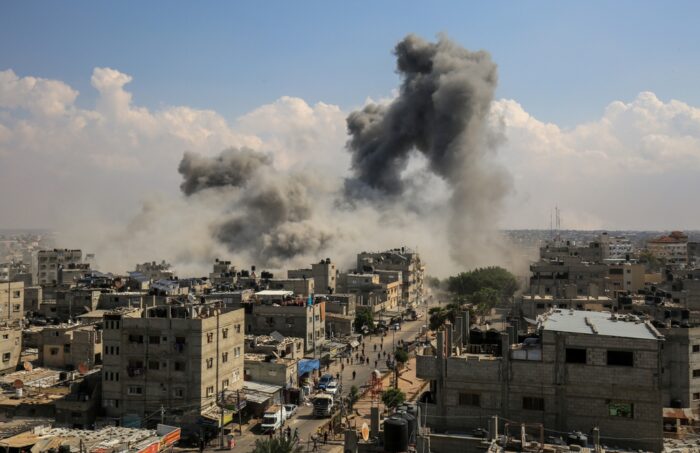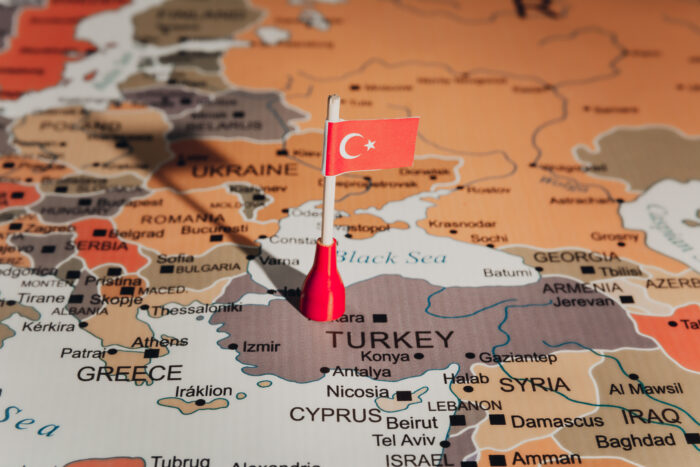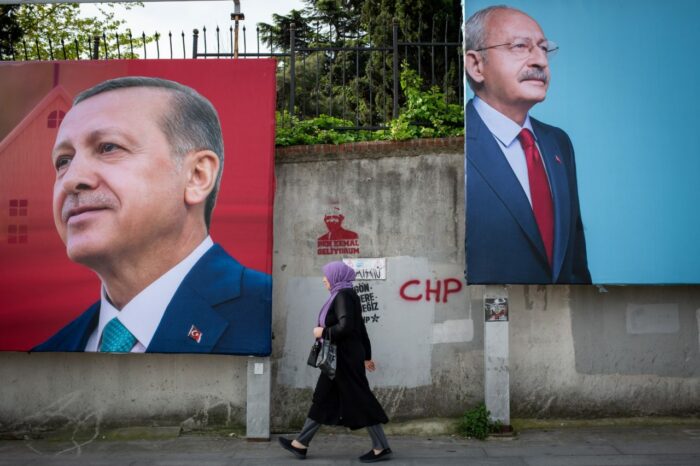The Progressive Post
Turkey’s challenges and choices on its 100th anniversary

On 29 October the Republic of Turkey – initiated and founded by the visionary M. Kemal Atatürk and the leaders of the national liberation and reform movement – celebrates its centenary. The country, however, has unfortunately reached a crossroads. Envisioned by Atatürk as a sovereign, independent, democratic, secular and republican country belonging to the Western world, Turkey today faces serious challenges in terms of democratic erosion and dramatic economic difficulties. These challenges have been exacerbated by last May’s general election results. It is safe to say that progressive Turks are in serious despair about the future.
A remarkable result in spite of adverse conditions
On 14 May 2023, Turkey successfully managed a pivotal political moment when parliamentary and presidential elections took place, followed by the second round of the presidential election on 28 May. Prior to the elections, a sense of hope prevailed, both domestically and internationally, as opinion polls pointed to a possible change of government. Six opposition parties united in a coalition in support of a common presidential candidate, the president of the Republican People’s Party (CHP) Kemal Kılıçdaroğlu, with the aim of bringing about a transformative change in the political landscape. The expectations remained unfulfilled, but it is important to note that the margin between the two political alliances was always very narrow and the neck-and-neck race was conducted under extremely unfair conditions on all fronts. Despite the extremely high inflation rate reaching 85 per cent and the government’s mismanagement of the severe earthquake crisis in February 2023, President Erdoğan and the ruling AKP, together with their political allies, managed to maintain a majority in the parliament.
The election campaign in both rounds was characterised by President Erdoğan’s use of polarising and divisive language, emphasis on issues related to national security, and resorting to fake news and appeals to traditional family values. He also accused opposition politicians of supporting terrorist groups and being influenced by Western powers. The spread of fake news and propaganda linking the opposition to terrorist groups through manipulated videos were also important elements of the campaign. During the campaign, information was largely dominated by pro-government media groups and social media trolls, while independent and semi-independent media outlets faced punitive actions for expressing alternative ideas or giving a platform to the opposition’s views. Thus, the opposition was denied an equal and fair place in in both private and state-funded media. In spite of the polarised political environment, the joint opposition candidate Kemal Kılıçdaroğlu received 47.8 per cent of the vote.
After the election, the CHP turned inwards, and organised the local congresses leading to the final party congress that, in November, will select the new president. This congress is important as it will take place on the 100th anniversary of the Republic and of the party. The internal race for the leadership will be between two main camps: those who believe that the party should face the 2024 local elections in a condition of stability, therefore under the leadership of the current CHP President Kemal Kılıçdaroğlu; and those who want change and renewal, arguing that only in this way is it possible to succeed in the local elections. This group is led by Özgür Özel, one of the CHP’s parliamentary group leaders and candidate for the presidency of the party.
Turkey’s economic adversities
Turkey’s ongoing economic difficulties have persistently marginalised and strained the lowest and middle socioeconomic groups. The current high inflation rate coupled with the devaluation of the lira, has led to an unprecedented increase in living costs. For most citizens, meeting basic needs has become a major problem. Even with the recent increase in the minimum wage to over 13,000 liras, conditions for a household of four people are extremely challenging, and the poverty line indicator is projected to be around 39,700 liras. In the face of these difficulties, the government’s politicised economic policy continues to fail, the perception of corruption is at its highest level, and frustration and dissatisfaction are rising in society.
On top of all this, irregular migration, now estimated in the millions, has also caused frustration and discontent in society. According to data provided by the United Nations High Commissioner for Refugees, the number of Syrians residing under temporary protection in the country is 3.6 million. The total population of foreigners residing in Turkey as of July 2023 is estimated to be just over 4.8 million, representing approximately 5.74 per cent of the country’s total population. This situation, which has been exacerbated by the 2016 EU-Turkey Deal, is straining the social fabric of the country. Election campaigns have led to a noticeable rise in nationalist sentiments and mobilised all political movements to acknowledge and address this issue. The relatively rapid emergence of this phenomenon has led to a shift in the political focus from structural economic and political questions to the issues of identity and nationality.
In this volatile political context, ‘brain drain’ is experiencing a notable increase, especially among the younger and more educated segments of the population which typically forms the opposition’s strong base. A significant proportion of the population (particularly 61.3 per cent of those aged 18-25) express a desire to pursue their life and career abroad. This level of ‘brain drain’ could have detrimental effects on the country’s future and development path.
Ideological polarisation
The current ideological conflict and polarisation may serve the government’s agenda. The opposition alliance pursued a successful strategy in 2019, winning local governments in Istanbul, Ankara and many other metropolitan cities. This was a great morale and motivation boost for the opposition bloc and particularly for progressives. The ruling party’s bloc is now attacking the opposition more aggressively to win back these municipalities.
Polarisation has deepened to such an extent that the government is cancelling the 100th anniversary celebrations at home and abroad on absurd grounds and excuses. This is widely seen as revenge against the values of the republic with which the ruling party has never made peace. Although republican and progressive organisations are holding their own celebrations, the absence of official celebrations is felt with disappointment by millions of people, who are angry at being deprived of the opportunity to celebrate freely.
The upcoming local elections will represent a crucial moment to assess Turkish public opinion and its expectations. Also, they will be a test for the entire opposition, which has to resolve its internal issues, construct a winning story and reunify a broad-based opposition bloc.
Turkey is facing perhaps one of the most severe moments in its history, as the country is going through an economic, democratic and demographic crisis. Regrettably, the centenary of the Republic will take place under these circumstances. Yet, in spite of this pessimistic picture, I am hopeful about the future because I believe in the younger generations and I know that the country they envision is a progressive, prosperous and successful one. Turkey’s progressives and democrats need to find inspiration in the determination and legacy of Atatürk. A social movement that adapts this legacy to the context and opportunities of the 21st century will be able to build a future for Turkey that is much brighter and stronger.
Atatürk once said “There are no hopeless situations. There are hopeless people. I have never lost hope”. The strength of his words still sheds light and hope for millions of people.
The views and opinions expressed in this article are solely of the author and do not reflect the official policy or position of any institutions or organisations with which the author is affiliated.
Photo credits: Shutterstock.com/tolga ildun




